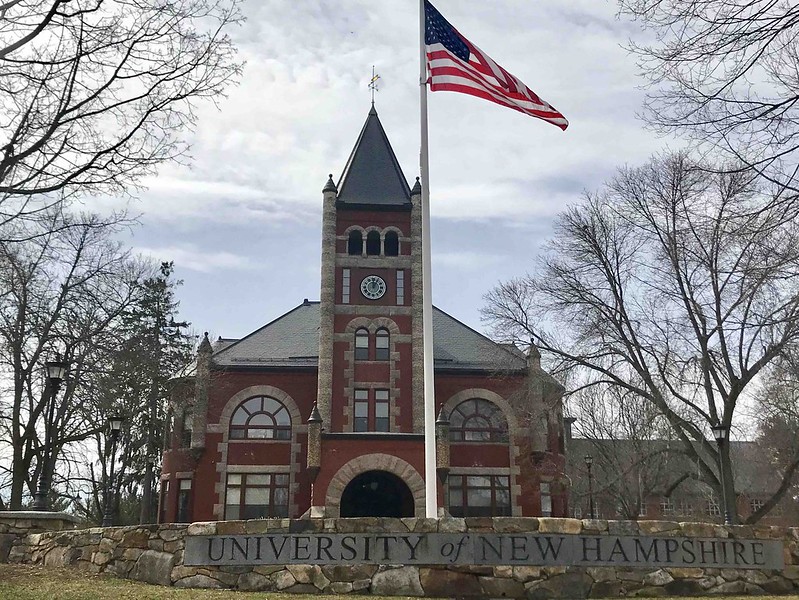Case Status: Victory
Silva v. University of New Hampshire

First-Ever Challenge to a Campus Speech Code
CIR’s 1994 victory on behalf of professor J. Donald Silva against the University of New Hampshire was the first successful case to challenge a university speech code. CIR filed the lawsuit when the campus left was beginning to use speech codes to silence politically incorrect sentiments.
Professor Silva saw firsthand the arbitrary way in which activists could use speech codes, ostensibly intended to protect students from an “offensive environment,” to punish speech solely because some students took offense at the “outrageous” nature of point of view expressed, never mind whether it created an objectively hostile environment.
Silva, an English professor, didn’t know he was violating a speech code when on two occasions he used mildly sexual examples to illustrate literary principles during his writing classes. On one occasion he told his class, “focus is like sex. You seek a target. You zero in on your subject. You bracket the subject and center on it. Focus connects experience and language. You and the subject become one.” Later, when discussing similes, Silva recounted the way the belly dancer “Little Egypt” had once defined her vocation: “Belly dancing,” she had said, “is like Jell-O on a plate with a vibrator under the plate.”
His remarks made a pedagogical point. They were neither obscene nor derogatory towards any gender. In his thirty years as a professor, Silva had used these illustrations multiple times without ever provoking a complaint. Indeed, the tenured professor had consistently received favorable ratings from students.
But in 1992, six female students complained to the administration about Silva’s statements. The students alleged that Silva’s comments were offensive and degrading, and they requested the school take disciplinary action against him.
University of New Hampshire’s Abysmal Response
UNH showed no interest in protecting Silva’s First Amendment rights. Prior to any hearing, the university treated Silva as though it had already found him guilty. It began by sending him a list of psychiatric counselors recommended by the “Sexual Harassment and Rape Prevention Program” and suggested that he seek help for his “problem.” After informally deliberating the issue, the school issued a reprimand, which Silva challenged.
While Silva was challenging his reprimand, the school initiated a formal hearing before a board of staff and students. The board decided that Silva’s comments created an “intimidating, hostile and offensive academic environment.” As a result, Silva it suspended Silva from teaching. The board ordered him to apologize to the students who complained about him, reimburse UNH for the expenses it incurred in alterations in teaching assignments related to his conduct, and undergo psychiatric counseling at his own expense.
Silva appealed the decision to a second board composed of staff and students. But the 13-hour hearing was highly chaotic and unprofessional. People in attendance were eating, talking, and apparently signalling to one another; students became visibly emotional when Silva questioned them, and they would refuse to answer; at the height of the pandemonium, one student, evidently overwhelmed by the proceedings, appeared to grow ill and nearly fainted.
Following this chaotic proceeding, the board upheld Silva’s suspension.
Silva’s First Amendment Lawsuit
Silva filed a lawsuit in federal court shortly thereafter. He argued that the public university punished him on the basis of his constitutionally protected speech.
In order to defend the university’s decision, the state argued for a dramatically narrow interpretation of the First Amendment. In its summary judgement memo, the state argued that a professors’ speech enjoys zero constitutional protection unless it addresses matters of “public concern.”
U.S. District Judge Shane Devine rejected the state’s argument and ruled that the First Amendment protected Silva’s comments. Judge Devine found that the university punished Silva “simply because six adult students found his choice of words to be outrageous.” He proceeded to quote the Supreme Court in NAACP v. Clairborne Hardware Co., writing,
“‘Outrageousness’ in the area of political and social discourse has an inherent subjectiveness about it which would allow a jury to impose liability on the basis of the jurors’ tastes or views, or perhaps on the basis of their dislike of a particular expression. An “outrgeousness” standard thus runs afoul of our longstanding refusal to allow damages to be awarded because the speech in question may have an adverse emotional impact on the audience.”
Accordingly, Judge Devine found “the application of the [University System of New Hampshire] Sexual Harassment Policy to Silva’s classroom statements violates the First Amendment.” He ordered the school to reinstate Silva and even found that the individuals and administrators who served on the hearing board should be held personally liable for their clear violation of Silva’s rights.
The school initially wanted to appeal the district court’s ruling, but before before long, it agreed to settle the case. Silva was permanently reinstated to his position and received back-pay for the period of his suspension.
